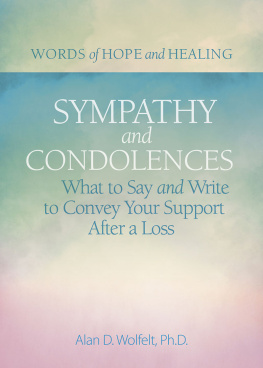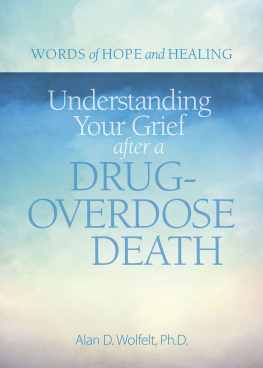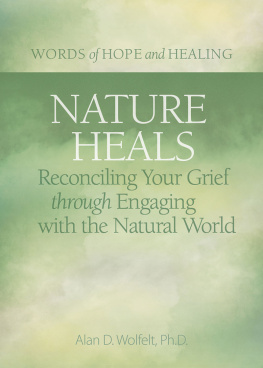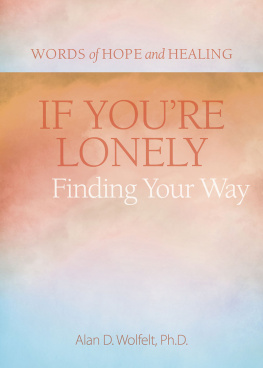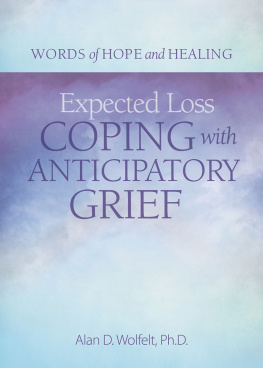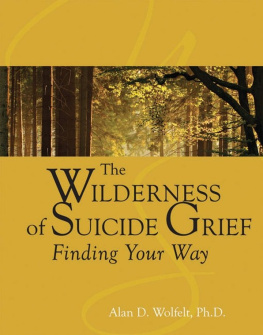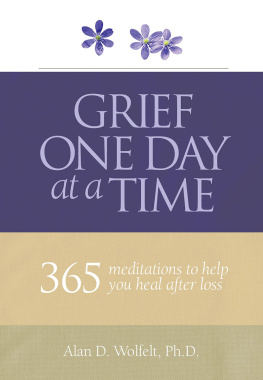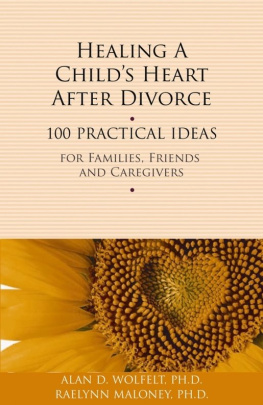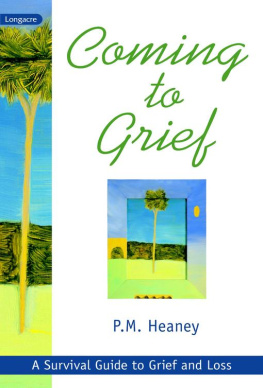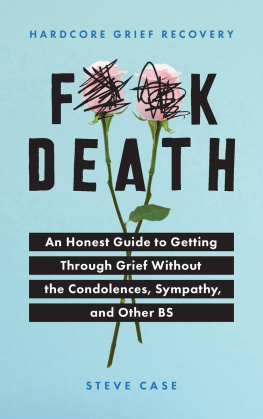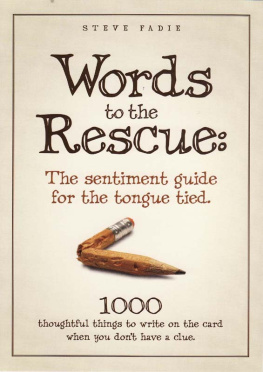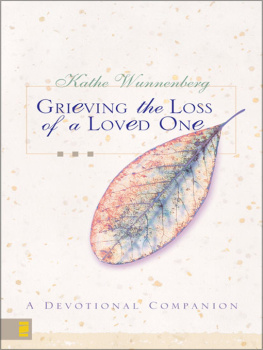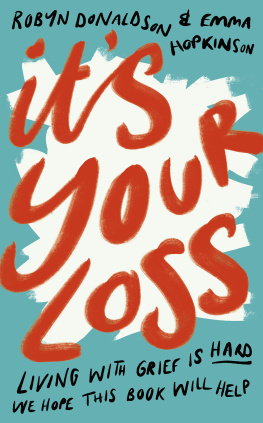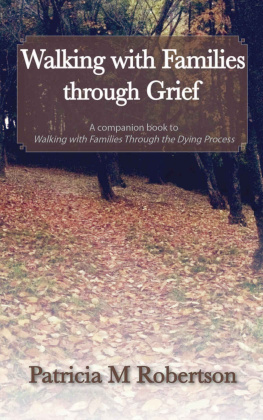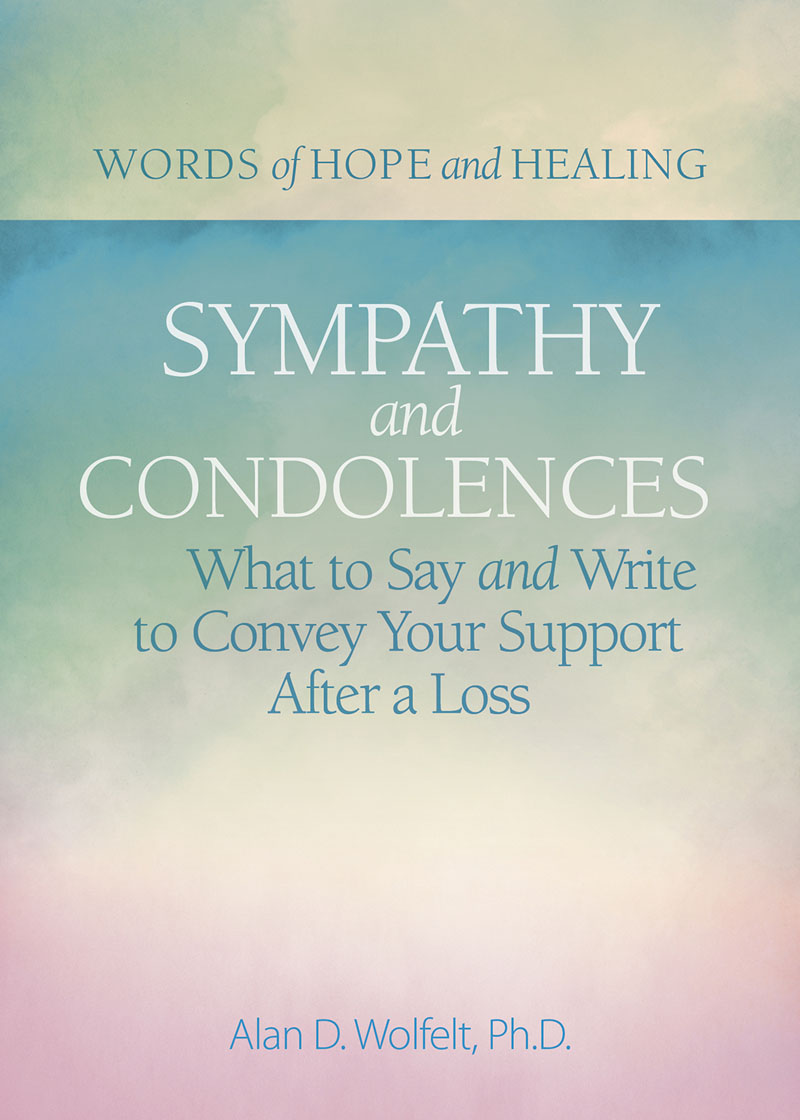
2021 by Alan D. Wolfelt, Ph.D.
All rights reserved. No part of this publication may be reproduced, stored in a retrieval system, or transmitted in any form or by any means, electronic, mechanical, photocopying, recording, or otherwise, without the prior permission of the publisher.
Companion Press is an imprint of the Center for Loss and Life Transition, 3735 Broken Bow Road, Fort Collins, Colorado 80526.
26 25 24 23 22 21 6 5 4 3 2 1
ISBN: 978-1-61722-305-1
CONTENTS
WELCOME
All I ever wanted was to reach out and touch another human being, not just with my hands but with my heart.
Tahereh Mafi
Someone you care about has suffered a significant life loss. What do you say to them?
You want to let them know youre sorry and that youre thinking about them. You want your genuine concern to come across. So how do you put your feelings into the right wordswords that will help them feel acknowledged and supported?
Expressing condolences is so important, but its often tricky. While there are no hard-and-fast rules that apply to all unique grievers and loss circumstances, there are concepts and guidelines that can help you become a better condolence-giver.
My hope is that this little book will find a home in your notecard drawer or on your electronic device of choice. Whenever youre not sure what to say or write in a loss situation, I invite you to pull it out and page through it. Youll find tips and suggestions that will help you connect with more confidence and warmth.
Thank you for caring. Thank you for being someone who wants to help. Your loved ones and acquaintances are lucky to have you in their circle of support.
THE IMPORTANCE OF SUPPORTING PEOPLE IN GRIEF
Too often we underestimate the power of a touch, a smile, a kind word, a listening ear, an honest compliment, or the smallest act of caring, all of which have the potential to turn a life around.
Leo Buscaglia
Our culture isnt very good at grief. We often make grievers feel like they have to keep their grief privateinvisible and locked up inside them. We also tend to imply they should be embarrassed about or ashamed of openly mourning. But the truth is that grief is normal and necessary, and so is expressing it honestly.
The term condolence is from the Latin word condolere, meaning to grieve or suffer with another. Thats what were doing when we share our condolences. Were letting people in grief know that we feel for them. Were bearing witness to and honoring their authentic loss and pain.
The timing of condolences matters. We give them shortly after a loss. Why? Because for the mourner, social recognition is necessary for them to even set off on their mourning journeys. I always say that affirmation of a loss precedes any movement toward integrating the loss. In my forty years of grief counseling experience, people whose losses arent acknowledged quickly and sufficiently enough by others often remain stuck in shock, numbness, and denial. They have a lingering sense of surrealness, and they sometimes tell me they think theyre going crazy. All of these are normal early grief feelings, but with good, compassionate public acknowledgment and support, they start to soften, allowing grievers to fully acknowledge the reality themselves and truly feel and embrace their necessary grief.
So condolences are the first step in what can and should be a long-term commitment to supporting the grieving people we care about. A bit later well talk more about the importance of following up (see ), but for now Ill just say that offering your condolences is like opening a door. When you genuinely let someone know you see them and their pain, youre signaling that youre one of the helpers willing to step inside their grief with them.
For grievers, the more helpers they have in that room alongside them, the better.
SYMPATHY OR EMPATHY?
Empathy is full presence to whats alive in the other person at this moment.
John Cunningham
Many people use the words sympathy and empathy interchangeably. Yet theres an important difference between the two. Understanding this difference will make you a better helper.
When youre sympathetic to someone else, you are noticing and feeling concern for their circumstances, usually at a distance. Youre feeling sorry for them. You are feeling pity for them. Youre passively looking at their situation from the outside, and you are acknowledging the distress passively. You may be offering a simple solution, platitude, or distraction. Sometimes sympathy even includes a touch of judgment or superiority.
Sympathy is feeling for someone else.
Empathy, on the other hand, is about making an emotional connection. It is a more active processone in which you try to understand and feel the other persons experience from the inside out rather than imposing meaning from the outside in.
When you offer empathy, youre not judging the person or the circumstances. You are not offering simple solutions. Instead, youre making yourself vulnerable to the persons ever-changing thoughts, feelings, and circumstances by looking for connections to similar thoughts, feelings, and circumstances inside you. You are being present to the other person and allowing yourself to be taught by them.
Empathy is feeling with someone else.
Empathy is communicated when you respond at the emotional, feelings level of the mourner. You reach the mourner where they are, being careful not to bring judgment or a need to get them to let go and move on. This dependable quality of empathy is what seems to free mourners to open their hearts and mourn from the inside out. You will know you are actively empathizing when the mourner trusts you, opens up to you, and feels you are trying to truly understand.
Its easier to be sympathetic, but its more helpful to the mourner if youre empathetic. This book is entitled Sympathy and Condolences because those are the terms we as a culture use to describe the socially recognized rituals of reaching out to others after a loss. These are critical rituals, but as you practice them and improve your condolence skills, I hope you will remember that whenever possible you want to offer empathy, not sympathy, especially if you personally know the mourner.
LOSSES DESERVING OF YOUR EMPATHY
Depending on your age and life circumstances, you yourself may have experienced a number of losses of various kinds already. Which caused you deep, lasting grief? Which were sharply painful but maybe hurt a lot for a shorter length of time? Which created nagging worry, disappointment, or unease?
Grief may be different for different kinds of losses, but its always difficult and deserving of empathy. So when youre wondering if you should say something to a friend or loved one about a relatively minor or ambiguous loss in their life, I hope youll remember to err on the side of compassion.
Heres a good rule of thumb: If it hurts, it needs to be acknowledged and supported.
In addition to the death of a loved one, here are some common life losses and transitions that are always painful and thus deserving of your empathy:
- divorce
- break-ups
- illness
- estrangement or physical separation from a loved one
- loss of a pet
- burst bubbles (realizations that cherished people or things were not what the person believed, hoped, or dreamed them to be)
- betrayals
- abuse
- lost or broken dreams

